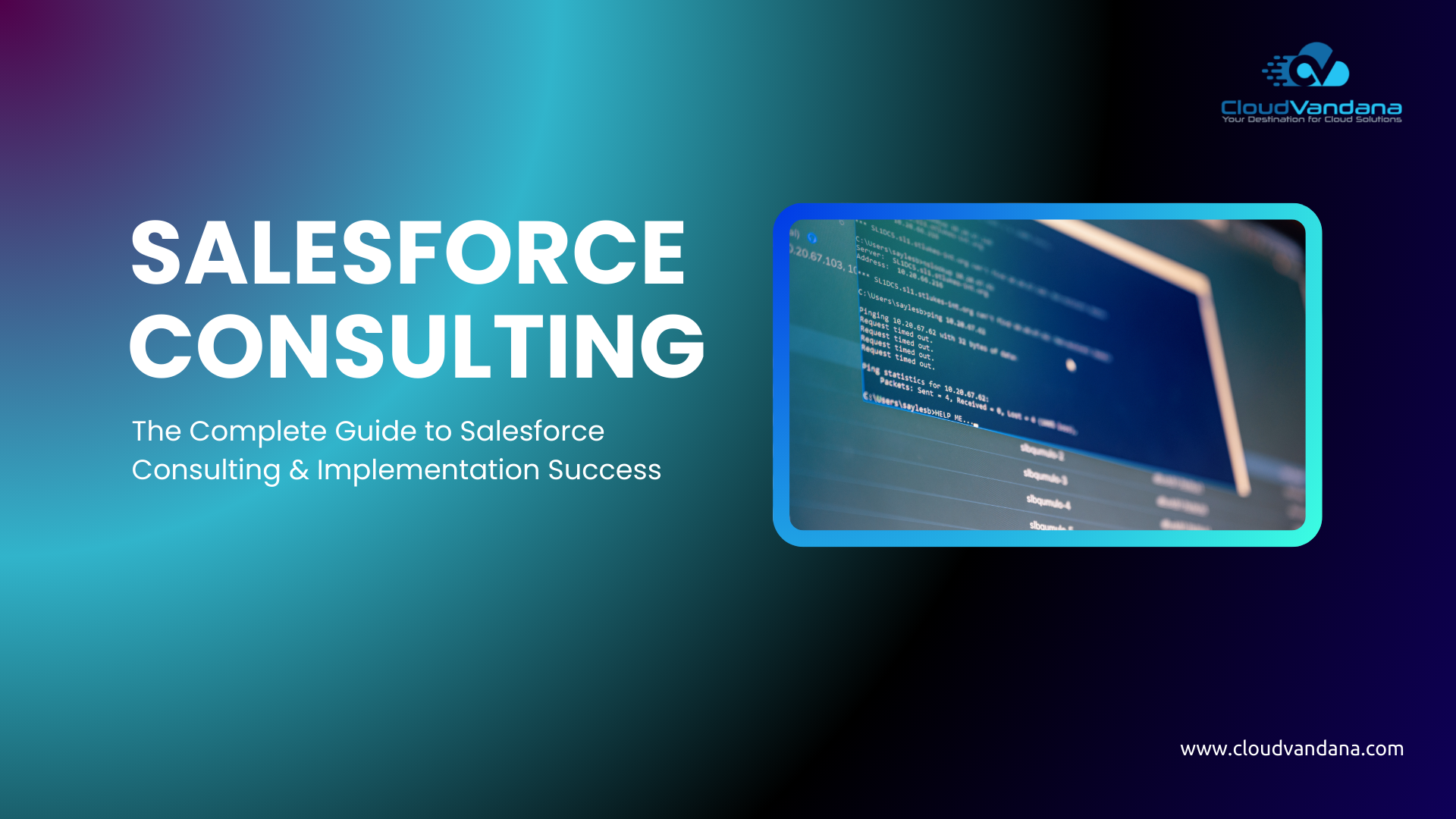
The Complete Guide to Salesforce Consulting & Implementation Success
Discover how to achieve Salesforce consulting and implementation success. Explore strategies, common pitfalls, and CloudVandana’s proven expertise. Table of Contents

Discover how to achieve Salesforce consulting and implementation success. Explore strategies, common pitfalls, and CloudVandana’s proven expertise. Table of Contents
600 N Broad Street Suite 5 # 845 Middletown, DE 19709 United States Phone : +1(213)634-5362
India: C 30, RB Road, Adarsh Nagar, New Delhi – 110033
Phone: +91(782) 796-1763
Thanks a ton for subscribing to our newsletter!
The Guide’s on Its Way.
It’s in your inbox.
(You might need to check spam — email can be weird.)